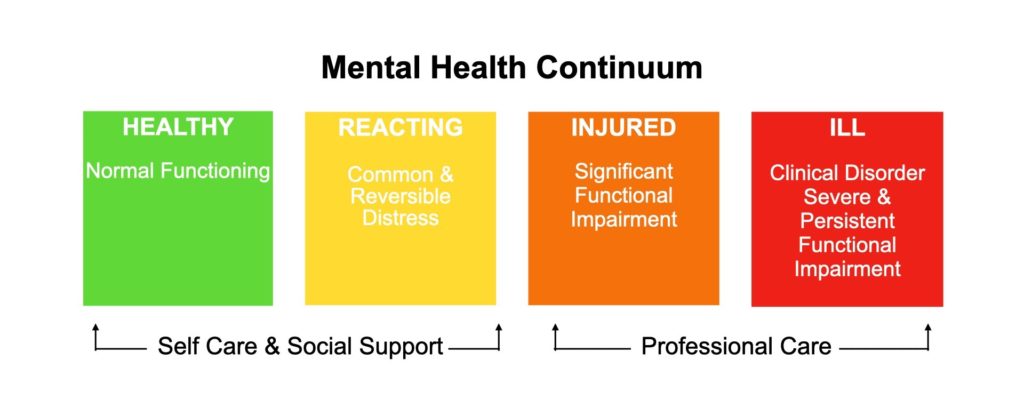My wife and I celebrated our 8 year wedding anniversary this year. We got married on March 30, 2012 and it was a fantastic celebration with friends, family, and a lot of dancing. 2012 was a great year for me in many ways, but there were also a few situations that occurred that I did not know how to process well. Married life was wonderful, but that first year was definitely tricky because Evette and I were trying to figure out how to live life together. I remember having multiple conversations about our differing perspectives on when to wake up on the weekends, how to set the table, where to have dinner, and when to clean the dishes! And the church I had helped to start and was pastoring was struggling financially. In many ways, the church was pretty healthy for only being a few years old, but the finances were in a rough place. I began to experience and carry a lot of anxiety and stress.
So in the fall of 2012, my 28 year old body said, “I’m going to help you see just how worried, stressed, and anxious you are.” And I got shingles.
Shingles, as you may know, is a stress-induced infection that causes a painful rash that usually shows up on the chest, side, or back. It is extremely painful and it is very uncommon for young people to get.
We live in an extremely anxious time and culture. Stress and anxiety are a way of life in the Western world. If you are not worried about something, then there must be something wrong with you! The media and advertising preys on this worry and anxiety to sell us stuff. Parents better be worried about the safety of their children. Singles better be worried about finding a relationship. Couples better be worried about staying attractive for their partner. Everyone better be worried about how much money is in the bank!
The mental stress, anxiety, and pressure that humans experience does not just affect our mind but also relationships, our bodies, emotions, spirituality, and the way we approach work. The human ecosystem is composed of many elements and when one part suffers, the whole suffers. When one part is strengthened, everything else benefits.
In other words, you don’t have a soul. You are a soul.
What is Mental Health?
There has been a significant effort in our culture over the past 10-15 years to raise awareness about the importance of mental health and de-stigmatize mental illness. Taking a “mental health day” has become a popularized mantra and organizations are beginning to encourage their employees to practice a mentally healthy lifestyle.[1] Mindfulness and meditation have become prevalent life strategies to help navigate mental health. But cultivating mental health in the midst of an anxious, lonely, and polarized culture continues to be difficult and mental illness continues to be a significant challenge and reality for many people in the Western world.
- 19% of adults in the United States (40 million) experience an anxiety disorder any given year.
- 1 in 5 adults in the United States experience mental illness.
- 17% of youth (6-17) in the United States experience a mental health disorder.
- 46% of people who die by suicide have a diagnosed mental health condition.
- The overall suicide rate in the United States has increased 31% since 2001.[2]
There are some positive trends in Western culture regarding mental health, but the the reality is that most of us will experience an anxiety disorder at some point in our lives and all of us will have a relationship with someone who is struggling with mental illness. But the culture is not completely to blame for our poor mental health, each person resists mental health in multiple ways. We resist moving towards mental health when we choose to numb our anxiety with coping mechanisms like food, alcohol, and addictive behaviors. We resist moving towards mental health when we refuse to pay attention to how our bodies respond to stress. We resist moving towards mental health when we do not examine our triggers and the “why” underneath strong reactions. We resist moving towards mental health when we put off activities that fill us with delight, joy, and refreshment.
Mental health is a skill that we learn and grow in over time. Every person has to intentionally and repeatedly choose to grow in to a mentally healthy person over the course of their life. This is my working definition for mental health:
Mental health is the ability to actively engage in intellectual curiosity and creativity, proactively practice mental health habits, and intentionally navigate anxiety and depression.
There are three main elements to this understanding of mental health that needs to be unpacked a bit more:
- Ability to actively engage in intellectual curiosity and creativity – Mentally healthy people grow in their ability to engage with subjects that spark intellectual curiosity and creative expression. This can include vocationally stimulating work, having a creative expression hobby, intentionally learning a new skill, or discussing a topic with people from diverse perspectives. Mental health is cultivated through a life-long pursuit of learning and creativity.
- Ability to proactively practice mental health habits – Mentally healthy people grow in their ability to proactively practice habits that nurture and nourish their mental health. This means identifying what helps you process stress in a healthy way, investing time and resources into enriching activities, setting boundaries with draining people and circumstances, and resisting anxious-ridden activities. Mental health grows the more attentive we become to the concrete habits of our lives
- Ability to intentionally navigate anxiety and depression – Mentally healthy people grow in their ability to identify when they are experiencing anxiety and/or depression and how to respond in a healthy way. This includes becoming aware of triggers that produce anxiety, common signs of on-coming depression, and concrete steps to take when either depression or anxiety has set in. Mental health occurs when we embrace our anxiety and depression, rather than resist it.
Growing into mentally healthy people takes time, support, and deepening self-awareness. Getting a sense of where you currently are on the Mental Health Continuum is a great place to start.
Mental Health Continuum

The Mental Health Continuum[3] is a commonly used tool that helps clarify where a person currently is and what kind of support they might need to move towards increased mental health.
- The “Healthy” category is typically characterized by good sleep habits, socially active, normal mood fluctuations, and overall energy. In this stage, it is important to maintain a healthy lifestyle and nurture your support systems.
- The “Reacting” category is typically characterized by irritability, sadness, procrastination, difficulty sleeping, and low energy. In this stage, it is important to get adequate rest, healthy food, regular exercise, and begin identifying and minimizing stressors.
- The “Injured” category is typically characterized by pervasive sadness, hopelessness, fatigue, social avoidance, restless sleep, and work performance decline. In this stage, it is important to start talking with a professional counselor, begin reaching out to social supports, and identify signs of distress.
- The “Ill” category is typically characterized by excessive anxiety, extreme emotions, depressed moods, social isolation, physical exhaustion, and inability to perform work duties. In this stage, it is important to seek consolation from a professional health care provider and follow their direction.
Everyone is located somewhere on this continuum and it is possible to move from one category to another. Moving towards increased mental health requires identifying where we currently are and courageously taking steps towards a preferred future.
The Spirit of the Lord is on Me
The core of the Christian message is hope. This includes a present hope, but also a future hope in God restoring all that has been broken in this world. In Luke 4, Jesus talks about his unique purpose and mission, which is filled with a vision of a preferred future.
The Spirit of the Lord is on me,
because he has anointed me
to proclaim good news to the poor.
He has sent me to proclaim freedom for the prisoners
and recovery of sight for the blind,
to set the oppressed free,
to proclaim the year of the Lord’s favor.
This preferred future seemed to capture the imagination of Jesus, giving him direction and courage to move into difficulty and darkness. If we are going to attempt to grow in our mental health, then it is crucial that we have a vision and hope for what life will look like. We will give up too easily without a clear vision and goal. If we pursue mental health it will mean examining the patterns of mental health and illness in our family-of-origin, confronting the false stories and narratives that play on “repeat” in our minds, experiment with new practices and habits that may be unfamiliar to us, and share our inner life more vulnerably than we have before. If we go on this journey, what will life look like on the other side? Will it have been worth it?
Growing into a mentally healthy person is challenging, but there is tremendous fruit on the other side. Healthy trees grow fruit and as we grow in mental health there will be “fruit” that grows in our lives. Here are a few examples of “fruit” that will grow as we pursue mental health:
- Confidence that grows from successfully managing the inevitable anxiety and stress of life.
- Freedom from false scripts that we have believed about life, ourselves, and others.
- Integration with our relationships, work, emotions, spirituality, and all aspects of life.
- Life-giving rhythms of work, rest, play, and relationships.
- Creativity that comes from applying our minds towards pursuits that we are passionate about.
A life of freedom, joy, and contentment is available for those who seek to grow in mental health.
This post is part of the You Are a Soul Series:
- Part 1: You Are a Soul
- Part 2: Emotional Health
- Part 3: Relational Health
- Part 4: Spiritual Health
- Part 5: Physical Health
- Part 6: Mental Health
- Part 7: Vocational Health
- Part 8: Crafting a Rhythm of Life

[1] “8 Employers Supporting Employee Mental Health During COVID-19” by Taylor Adams. Mental Health America. mhanational.org/blog/8-employers-supporting-employee-mental-health-during-covid-19
[2] National Alliance on Mental Health. nami.org/home
[3] Mental Health Commission of Canada. theworkingmind.ca/continuum-self-check
Share this Post
